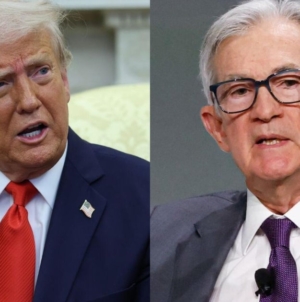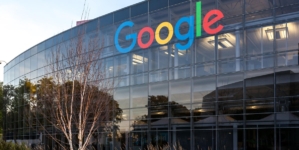-
Gleyber Torres hits a single, driving in two runs in the Tigers' 6-4 win over Padres - 18 mins ago
-
Trump Endorses Both Republican Candidates in Arizona Governor’s Race - 44 mins ago
-
Detroit Pistons win first playoff game since 2008 ECF, beating the Knicks in Game 2 - about 1 hour ago
-
L.A. County sex abuse-related documents never turned over, lawyers say - about 1 hour ago
-
4 Players Who Could Be Late-Round Steals In the 2025 NFL Draft - about 1 hour ago
-
Francisco Lindor crushes second home run of the game, helping Mets defeat Phillies - 2 hours ago
-
Mayor Karen Bass proposes layoffs for about 1,650 L.A. city workers - 2 hours ago
-
4 Prospects Cincinnati Bengals Should Avoid With No. 17 Pick In 2025 NFL Draft - 2 hours ago
-
Michigan TE Colston Loveland's highlights from 2024 season - 2 hours ago
-
Three months after wildfire, Mayor Bass proposes adding more than 200 jobs to LAFD - 3 hours ago
Costco shareholders reject an anti-DEI measure, after Walmart and others end diversity programs
Costco shareholders voted down a shareholder proposal urging the wholesale club operator to evaluate any risks posed by its diversity, equity and inclusion, or DEI, practices.
According to preliminary results shared by Costco executives at its annual meeting Thursday, more than 98% of shares voted against the proposal.
In a pre-recorded statement which was played at Costco’s 2025 annual shareholders meeting on Jan. 23, the shareholder proposing the anti-DEI resolution, The National Center for Public Policy Research, said that “Diversity, equity and inclusion may sound benign on the surface, but in reality it is weaponized language concealing a radical Marxist agenda.”
The shareholder continued to say that DEI “comes at the expense of merit by not hiring and promoting completely, irrespective of race and sex.”
Prior to the shareholder meeting, Costco’s board of directors had voted unanimously to ask investors to reject the motion. The board had said it believes “our commitment to an enterprise rooted in respect and inclusion is appropriate and necessary. The report requested by this proposal would not provide meaningful additional information.”
Costco’s defense of its DEI practices comes as other large U.S. corporations are shifting away from programs that encourage equality in the workplace for women, minorities and other groups. In recent weeks, companies including Meta, Ford, McDonald’s and Walmart have ended their DEI programs, decisions that follow the 2023 Supreme Court decision banning affirmative action in college admissions, as well as pressure from conservative political activists.
“Our commitment to inclusion … does not and has never included quotas or systematic preferences, nor does it mean compromising merit,” said Tony E. James, Costco’s board chair, said at Thursday’s meeting. “The demands of our business and our steadfast commitment to serve our members mean that we cannot afford to do anything but hire and promote the most qualified individuals,”
The National Center for Public Policy Research, a conservative think tank based in Washington, had earlier submitted a proposal asking Costco to examine the risks of its DEI program, arguing that such initiatives hold “litigation, reputational and financial risks to the company, and therefore financial risks to shareholders.”
The think tank, which has made a similar proposal to Apple, cited the U.S. Supreme Court decision in July 2023 that outlawed affirmative action in college admissions.
Costco: Diversity fosters “creativity and innovation”
The directors’ message to shareholders details how having diverse employees and suppliers has, in their view, fostered “creativity and innovation in the merchandise and services that we offer” and led to greater customer satisfaction among Costco members.
In advance of the meeting, Neil Saunders, managing director of consulting firm GlobalData’s retail division, said Costco could be confident the proposal would be rejected.
“I think people generally have confidence in Costco’s management, and there’s an attitude of ‘Why rock the boat? It’s sailing very nicely,'” Saunders said.
Costco’s public stance in support of diversity, equity and inclusion programs contrasts with the positions taken in recent months by other big consumer brands that have backed away from DEI. Last week, more than 30 Walmart shareholders, including Amalgamated Bank and Oxfam America, asked the CEO of the nation’s largest retailer to explain the business impact of curbing the company’s DEI policies, a move they called “disheartening.”
Emboldened by the Supreme Court’s decision on affirmative action at colleges and universities, conservative groups have filed lawsuits making similar arguments about corporations, targeting initiatives such as employee resource groups and hiring practices that prioritize historically marginalized groups.
On Monday, Trump signed an executive order aimed at terminating DEI programs within federal agencies. Conservatives have long condemned them, arguing they violate the U.S. Constitution by considering factors such as race, gender and sexual orientation.
The Trump administration’s plan includes leveraging the Justice Department and other agencies to probe private companies pursuing training and hiring practices that conservative critics consider discriminatory against people who do not belong to minority groups, such as white men.
Costco’s financial performance
As for Costco, the National Center for Public Policy Research alleged that at least 200,000 of the company’s 300,000 employees worldwide “are potentially victims of this type of illegal discrimination because they are white, Asian, male or straight.” If only a fraction of those employees were to sue Costco, the legal costs could be significant, the center said.
Costco has a chief diversity officer, but the company’s executive ranks do not reflect the diversity of its customers. Nearly 81% of the executives Costco had in place last year were white, and 72% of them were men, according to data published on its website. Saunders said members of Costco’s management team typically stay a long time given the company’s solid and stable financial performance.
The warehouse giant’s sales rose 7.5% in its most recent quarter versus the year-earlier period, while net income jumped 13% from a year earlier. Meanwhile, Costco’s stock has soared about 36% during the past 12 months, outpacing the S&P 500’s 26% gain over the same period.
In other ways, Costco has been a bit of a maverick in the corporate world. It doesn’t have an official corporate public relations team, and it hasn’t focused on building up online business as much as rivals Walmart and Target.
Apple’s support of DEI
The National Center for Public Policy Research intends to present a proposal at Apple’s Feb. 25 shareholder meeting that goes beyond what the think tank wants from Costco. The center’s resolution asks the tech company to abolish its inclusion and equity department, policies and goals, describing them as “consistent with, if not more radical than, most corporate DEI programs.
Apple’s board wants shareholders to vote down the proposal, saying the company strives “to create a culture of belonging where everyone can do their best work.”
JPMorgan CEO Jamie Dimon this week joined the corporate leaders taking a stand in support of the expanded diversity goals some companies added after the 2020 police killing of George Floyd. Dimon defended his bank’s DEI policies during an interview with CNBC.
“We are going to continue to reach out to the Black community, Hispanic community, the LGBT community, the veterans community,” he said, speaking Wednesday from the World Economic Forum meeting in Davos, Switzerland. “And wherever I go, red states, blue states, green states, mayors, governors and they said they like what we do.”
Trump’s actions this week increase the potential legal risks for companies that resist the conservative backlash against DEI, according to David Glasgow, executive director of the Meltzer Center for Diversity, Inclusion and Belonging at NYU School of Law. But most big companies will have consulted their lawyers or performed an internal self-audit after the Supreme Court’s affirmative action ruling, Glasgow said.
“So if you are an Apple or another company who’s done that, and you’re confident in the legality of your existing DEI program, … I think what you should do right now is stand firm,” he said.































